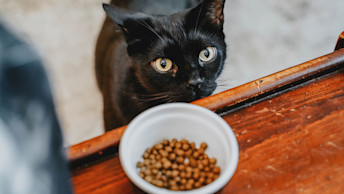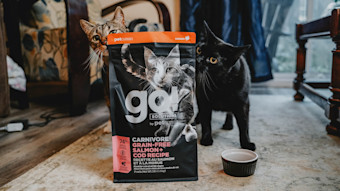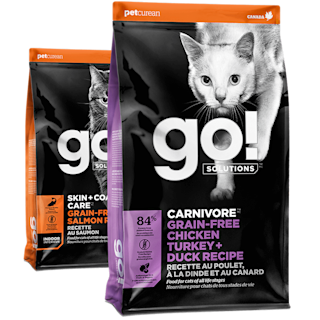October 30, 2025
What Is an All Life Stages Cat Food?

When choosing the best food for your cat, you may come across the term "All Life Stages" on pet food labels. But what does it actually mean? If you're wondering how to feed multiple cats of different ages, an all life stages cat food might be a great solution. Let’s break it down so you can make an informed choice for your pets.
Understanding All Life Stages Cat Food
Pet food is formulated based on nutritional profiles established by the Association of American Feed Control Officials (AAFCO). AAFCO sets guidelines for two primary categories of cat food:
Growth & Reproduction (kittens and pregnant or nursing cats)
Adult Maintenance (adult cats that are no longer growing)
However, there is also a third category: All Life Stages cat food. This means the formula meets the nutritional requirements for both growing kittens, adult cats, and pregnant or lactating cats, making it a versatile option for pet parents with multiple cats at different life stages.
Benefits of All Life Stages Cat Food
1. Simplifies Feeding for Multi-Cat Households
If you have both a kitten and an adult cat, feeding them different foods can be a hassle. An all life stages cat food provides complete and balanced nutrition for both, eliminating the need to buy multiple types of food. This makes feeding simpler and can even save money in the long run.
2. Supports Growth and Maintenance
Since all life stages formulas meet the high-energy needs of kittens, they often contain higher levels of protein and essential nutrients. While this is ideal for growing cats, it can also benefit active adult cats who require extra energy for their daily adventures.

3. You Can Feed the Same Food as They Age
Instead of purchasing separate foods for different age groups, an all life stages formula allows you to buy one high-quality product that you can feed throughout your cat’s life stages, eliminating the need to transition diets as they grow.

Recommended Solution
All Life Stages Cat Food for a Lifetime of Good Health
We all want our cats to be happy and healthy at every stage of their life. That's why our all life stages cat food recipes are designed to support your cat's good health from kittenhood to their golden years.
View all life stages cat food
Is All Life Stages Food Right for Every Cat?
While all life stages cat food is designed to be nutritionally complete for most cats, there are a few cases where a more specialized diet might be better:
Senior cats: Older cats may benefit from formulas specifically formulated for seniors with joint support and lower calorie content.
Less active adult cats: If your cat has a lower activity level, they may need a food formulated specifically for maintenance to avoid unnecessary weight gain.
Cats with specific dietary needs: Some cats require specialized diets, such as grain-free, limited ingredient, or prescription-based formulas.
Final Thoughts
An all life stages cat food can be a great choice for households with multiple cats, offering balanced nutrition and simplifying mealtime. However, always consider your cat's individual needs and consult your veterinarian if you're unsure about the best option for them. With the right food, your cats can enjoy happy, healthy lives at every stage.


